Introducing the SRCD 2025 Early Career Interdisciplinary Scholars Fellowship Program Cohort
The Society for Research in Child Development (SRCD) welcomes the fellows and mentors of the 2025 Early Career Interdisciplinary Scholars Fellowship Program.
The Society for Research in Child Development (SRCD) is proud to introduce the 2025 cohort of the Early Career Interdisciplinary Scholars Fellowship (ECISF) Program. This program fosters interdisciplinary collaboration by connecting emerging scholars from diverse fields within child development, psychology, and related disciplines. The fellows of this year’s cohort are conducting groundbreaking research across a variety of topics, including bilingual education, global health, child mental health, early childhood policy, and much more.
Each fellow is paired with a mentor who guides their development and collaboration, facilitating the exchange of knowledge and methods to tackle the complex issues affecting children and families worldwide. Together, the fellows and mentors seek to advance the field by integrating interdisciplinary perspectives and affirming the vital contributions of diverse scholarly approaches to the study of child development.
Meet the 2025 Fellows and Their Mentors:
Dr. Ye Shen (Fellow)
Dr. Ye Shen is an Assistant Professor at the University of South Florida. She holds a Ph.D. in Education from the University of Delaware. Dr. Shen conducts rigorous empirical research with the goal of influencing policy and informing language teaching and learning in diverse educational and community contexts. Her work is grounded in an asset-based, additive view of bilingualism and linguistic diversity, recognizing students' cultural and linguistic assets as fundamental strengths. Through quantitative studies utilizing behavioral and neuroimaging measures, she aims to understand the complex and multifaceted processes underlying multilingual language, school readiness, and academic development. She is particularly interested in exploring how children's linguistic, cognitive, and environmental factors interactively shape their trajectories as multilinguals. Dr. Shen’s research has been supported by the American Educational Research Association-National Science Foundation, the American Psychological Association, and the Language Learning Journal. She has received several awards for her pioneering work on the literacy development of heritage language learners.
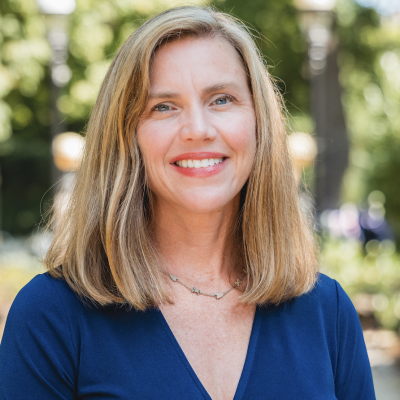
Dr. Brook Sawyer (Mentor)
Dr. Brook Sawyer holds a Ph.D. in educational psychology from the University of Virginia. Additionally, she holds an undergraduate degree in elementary education (University of Delaware) and a Master’s degree in psychological services in education (University of Pennsylvania). Sawyer is a professor in the Department of Education and Human Services at Lehigh University. She also serves as the Associate Dean of Graduate Studies in the College of Education. Sawyer began her career as a public school teacher and guidance counselor. Her scholarship, primarily funded by the Institute of Education Sciences, aims to promote the development of young children who have disabilities and/or who are multilingual learners (MLs), with a predominant focus on language and literacy development. Sawyer’s research centers on supporting the development of these vulnerable populations by furthering the field's knowledge of the current practices of parents, teachers, and other educational professionals and developing interventions to enhance the practices of these critical agents of change. Sawyer is an Associate Editor for the Early Education and Development journal.

Dr. Yeji Baek (Fellow)
Dr. Yeji Baek has over ten years of national and international experience in public health, working with academia, the United Nations, and government. She is currently a Research Fellow specializing in Global Health and Health Economics. She works in the Global and Women’s Health unit at the School of Public Health and Preventive Medicine, as well as in the Health Economics and Policy Evaluation Research Group at Monash University, Australia.
Yeji’s research interests include global health, maternal and child health/nutrition, child development, health economics, and health equity. She aims to advance knowledge on the economic evidence to support investments in child health and development in resource-constrained settings.
Beyond academia, Yeji has professional experience with UNICEF and the South Korean government. She has conducted feasibility studies and project evaluations to inform governments and international development partners across low- and middle-income countries, including Cameroon, Ethiopia, Laos, Morocco, Mozambique, and Nepal to promote child health and human rights.

Dr. Jenalee (Jena) Doom (Mentor)
Dr. Jena Doom is an associate professor of developmental psychology at the University of Denver. Her program of research focuses on the biological and behavioral mechanisms by which adverse and positive experiences from the prenatal period through adolescence affect mental and physical health across the lifespan. Her research examines the interactions between risk and protective factors, including nutrition, neighborhood violence, and the quality of social relationships, in children living in high-risk settings, which is crucial for creating interventions that promote resilience.

Dr. John Salerno (Fellow)
Dr. John P. Salerno (he/him/él) is a Provost’s Postdoctoral Research Scientist at the Columbia University School of Social Work. His research focuses on addressing mental health inequities among marginalized Latinx and LGBTQ+ youth populations. Employing critically oriented frameworks, Dr. Salerno’s recent primary community engaged research study, funded by a $120,000 grant from the National Institute of Mental Health, utilizes linear and mixture statistical modeling to explore psychosocial risk and protective factors for mental health among Latinx immigrant adolescents from the Northern Triangle (i.e., El Salvador, Guatemala, Honduras). Building on this work, Dr. Salerno was recently awarded a $16,000 seed grant from the National Institutes of Health (NIH)-funded Columbia Population Research Center to reveal the "testimonios" of stress, resilience, and mental health among Latinx LGBTQ+ immigrant youth. Dr. Salerno will leverage findings from these pilot studies to support the pursuit of an NIH K01 grant, which will center around conducting community engaged culturally grounded intervention development research and a stage 1 randomized controlled trial of a school-based mental health intervention for Latinx immigrant youth. Dr. Salerno strongly believes in health equity and social justice approaches that beg for professionals to not only consider but elevate the needs of disadvantaged, vulnerable, and oppressed populations.
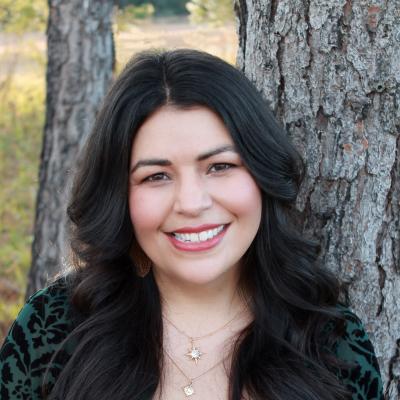
Dr. Melinda Gonzales-Backen (Mentor)
Dr. Melinda Gonzales-Backen is an Associate Professor and Associate Chair of Diversity, Equity, and Inclusion in the Department of Psychological and Brain Sciences at the University of Massachusetts, Amherst. Prior to joining the faculty at UMass, she was faculty in the Department of Human Development and Family Science at Florida State University for 12 years. She earned her Ph.D. and M.S. in Family and Human Development from Arizona State University and her B.A. in Psychology from the University of Arizona. Her research is centered on the collective roles of cultural, contextual, and familial processes in the well-being of Latinx adolescents and emerging adults. Specifically, she is interested in how adolescents learn about and engage in their ethnic-racial and cultural background and the role of family in that process. Dr. Gonzales-Backen has participated in SRCD mentoring efforts such as Horowitz Millenium Scholars and was awarded the Felix Berardo Award for Mentoring from the National Council on Family Relations in 2024. Currently, she is a Member-At-Large for the SRCD Latinx Caucus and a founding member of the Indigenous Caucus steering committee.
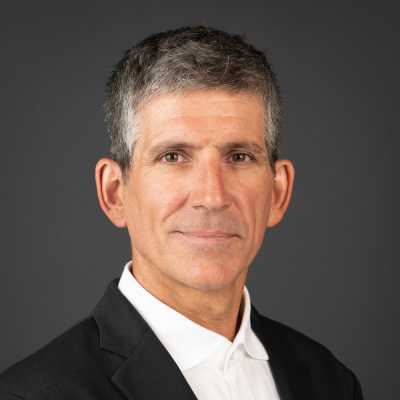
Dr. Remy Pages (Fellow)
Dr. Remy Pages is a researcher at the Executive Office on Early Learning for the State of Hawai‘i, where he investigates policy questions related to early childhood education (ECE) systems. His work bridges human development, policy, and practice, applying quantitative and mixed-method approaches to examine structural and programmatic factors shaping early learning experiences.
In 2024, he served as a Fulbright Public Policy Scholar in Rwanda, working with the National Child Development Agency to assess the infrastructure needs of the country’s early childhood sector. This work contributed to policy discussions on ECE expansion by identifying socioeconomic and geographical disparities in access and quality. Remy’s research applies advanced computational techniques and developmental theory to examine ecological variations in the learning affordances available to young children. More specifically, his current interests focus on early intellectual and socioemotional development within an ecocultural framework and the use of state-of-the-art technologies to analyze fine-grained speech interactions and spatial dynamics. He holds a Ph.D. in Education from UC Irvine, was a Postdoctoral Associate at the University of Florida, and earned an M.Ed. in Educational Psychology from UH Mānoa and a B.A. in Mathematics from UC Berkeley.
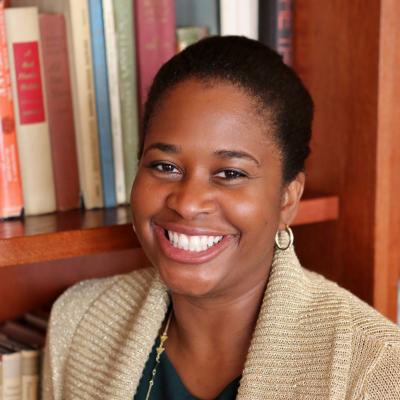
Dr. Stephanie Curenton (Mentor)
Dr. Stephanie M. Curenton is a professor in the Educational Leadership & Policy Studies department at Boston University Wheelock College of Education & Human Development and the director of the Center on the Ecology of Early Development (CEED). She is also a senior fellow at the Harvard University Center on the Developing Child and is a nonresident fellow at the Urban Institute.
She is a developmental and community psychologist who studies the social, cognitive, and language development of racially and linguistically marginalized children within various ecological contexts, such as parent-child interactions, early childhood care and education, professional development interventions for the early childhood workforce, and related state and federal policies designed to promote the positive development and health of young children.
Dr. Curenton has received national policy fellowships from several organizations, including the Society for Research on Child Development (SRCD)/American Association for the Advancement of Science (AAAS), and the National Black Child Development Institute. She has worked as a research policy fellow in the US Department of Health and Human Services, Office of Child Care, and has served on the Massachusetts Board of Early Education and Care. She previously served on the boards of the National Association for the Education of Young Children (NAEYC) and local Head Start programs. She currently serves on the leadership council for the Center on Early Childhood at Stanford University.
Dr. Curenton’s research has been funded by the HHS Office of Program Research and Evaluation (OPRE), the National Academy of Science Ford Predoctoral Fellowship, American Education Research Association–National Science Foundation (AERA-NSF), the Foundation for Child Development, the W. K. Kellogg Foundation, the Bill and Melinda Gates Foundation, Imaginable Futures, and the Robert Wood Johnson Foundation. She was an associate editor for Early Education and Development and Early Childhood Research Quarterly, and now serves as an associate editor for Child Development.

Dr. Katherine A. Graves (Fellow)
Dr. Katherine A. Graves is a Postdoctoral Scholar in the Department of Teacher and Administrator Preparation at the University of Texas at Arlington with research centered on promoting the safety, well-being, and rights of children and adolescents with Emotional and Behavioral Disorders (EBD). She is committed to conducting research that addresses the following: (a) the complex and multifaceted issues surrounding the education of students who engage in challenging behaviors and (b) the development and support of the implementation of evidence-based interventions that promote the dignity and autonomy of youth with disabilities. Dr. Graves’ research interests include evaluating processes and practices to support students with EBD and other challenging behaviors, interventions within the juvenile justice system, and school safety with an emphasis on restraint and seclusion. Her experiences as a special education teacher, where she taught in alternative schools and supported students who have a history of engaging in aggressive and/or violent behaviors, influenced her research interests. She aspires to improve the education and treatment of all students, especially those who have complex or significant undesired behaviors coupled with negative school experiences (i.e., trauma, exclusionary discipline, police violence).
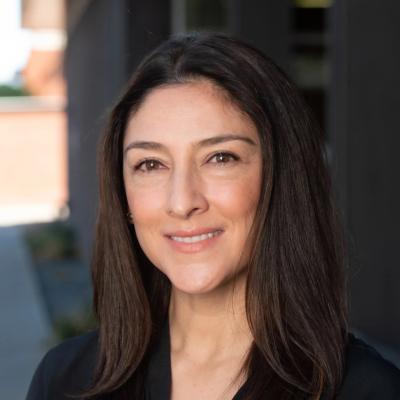
Dr. Melissa Delgado (Mentor)
Dr. Melissa Y. Delgado, is Associate Professor in Human Development and Family Science at the University of Arizona’s Norton School of Human Ecology. She recently joined the Child Development and Behavior Branch of the Eunice Kennedy Shriver National Institute of Child Health and Human Development as a 2024-2025 Society for Research in Child Development (SRCD), American Association for the Advancement of Science U.S. Policy Fellow. Over the past two decades, Dr. Delgado has conducted longitudinal and cross-sectional studies examining parent- adolescent relationships, stress processes, and adaptive ethnic-cultural responses in adolescents and their families. Her research demonstrates how sociocultural stressors affect both parents and adolescents concurrently within the family unit. Her research also examines math and science identity development in adolescents and the sociocultural contexts of schools, highlighting how these settings influence overall development. She employs mixed methods approaches, combining qualitative narratives with quantitative survey responses to provide a holistic understanding of youth-nuanced contextual processes. In addition to her research, Dr. Delgado has mentored numerous students at various levels, both within her academic programs and as part of her professional organizations, including SRCD and the Society for Research on Adolescence. The current policy fellowship will enhance her research agenda by connecting developmental science with federal policy initiatives supporting youth and families. Dr. Delgado earned her Ph.D., M.S., and B.S. in Family and Human Development, as well as a B.A. in Psychology, from Arizona State University, with a statistics doctoral collateral focus; she completed additional training as a W. T. Grant Foundation postdoctoral fellow.

Dr. Judy Watts (Fellow)
Dr. Judy Watts is an assistant professor at the William Allen White School of Journalism and Mass Communications at the University of Kansas. Her research examines the prosocial benefits that stories have on individuals and societies. Specifically, she investigates the potential for entertainment to facilitate children’s socioemotional learning and inclusive attitudes toward dissimilar others. Her research emphasizes the emotional responses and comprehension elicited by entertainment in child audiences. She also researches parents’ attitudes and willingness to use media as a tool to educate children and is interested in the intersection of media psychology, persuasion, and human development across the lifespan.
In her research, Judy employs experimental design and cross-sectional surveys. Her research has been published in Journal of Children and Media, Media Psychology, Communication Research, Journal of Communication, Human Communication Research, and Health Communication. In the future, she hopes to investigate how emerging forms of media and entertainment impact children’s development of empathy.
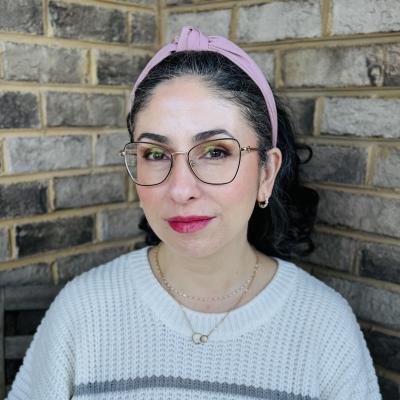
Dr. Natalia Palacios (Mentor)
Dr. Natalia Palacios is Associate Professor of Education in the Educational Psychology: Applied Developmental Science Program at the University of Virginia’s School of Education and Human Development. She earned her Ph.D. in Human Development and Social Policy from Northwestern University. Dr. Palacios’s research examines the familial and instructional processes that support the development and success of Latinx children, with a focus on recognizing and integrating cultural and linguistic assets into educational settings. By employing both quantitative and qualitative methods, her work provides nuanced insights into teacher- family dynamics and the developmental trajectories of English learners and immigrant children. Her research highlights the critical role of family engagement and teacher practices in fostering Latinx children’s academic and socio-emotional growth. Her findings have been published in leading journals such as Child Development, Child Development Perspectives, Developmental Psychology, and Early Childhood Research Quarterly and has been funded by various organizations including the Institute for Education Sciences and the Spencer Foundation.